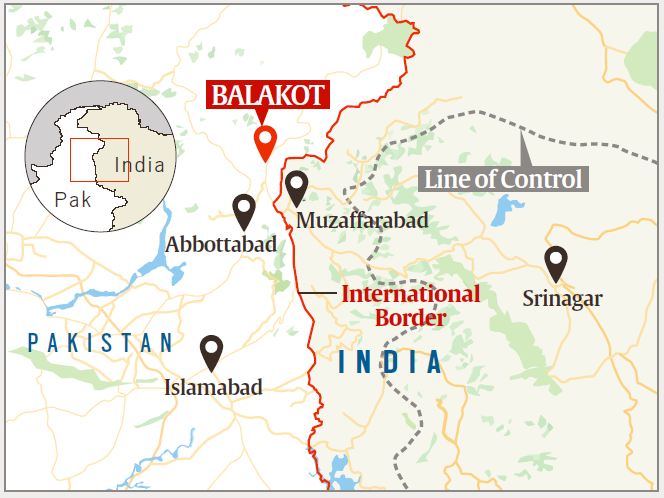7667766266
enquiry@shankarias.in
Why in news?
The Indian Air Force bombed the Jaish-e-Mohammad’s biggest terror-training camp in Pakistan’s Balakot.
What happened?

What is a "non-military pre-emptive strike"?
Does this signal a shift in India's stance?
What could Pakistan do?
Source: The Hindu, Indian Express